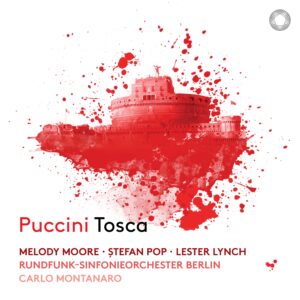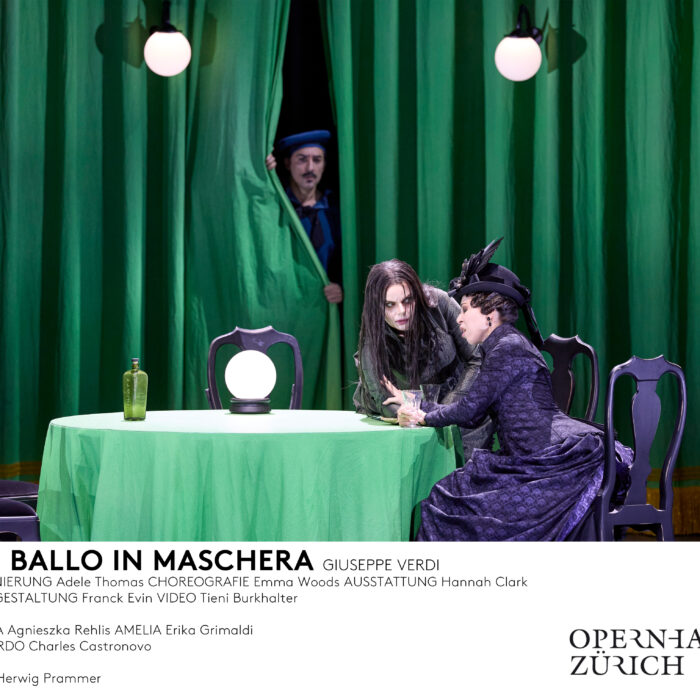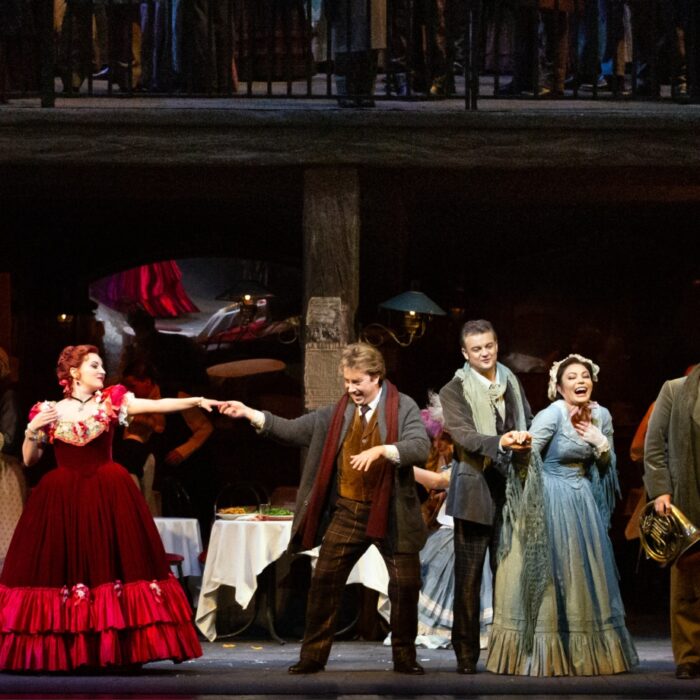
CD Review: Pentatone’s ‘Tosca’
By Bob DieschburgAfter this summer’s “Un Ballo in Maschera,” the forces behind the Dutch label Pentatone are turning their attention to another heavy-hitter from the Italian repertoire: with “Tosca” they enter the well-trodden territory of one of the most recorded operas ever.
Yet, Carlo Montanaro and the Rundfunk-Sinfonieorchester do not pretend to proverbially reinvent the wheel the way Rostropovich famously did in 1976; instead, they produce a balanced take, dramatic but lean and straightforward overall. Their “Tosca,” in short, is apt to captivate new audiences more than the entrenched Puccinian who, when in doubt, will still resort to old-time favorites.
Rushing the Action
For their “Tosca,” Pentatone and conductor Carlo Montanaro can rely on a solid cast of soloists headed, in the title-role, by the American Melody Moore.
Moore has an impressive track record of Puccini heroines, including Minnie, Butterfly, and even the stevedore’s wife Giorgetta. In “Tosca” she makes use of her voice’s dramatic inflections while curating the lyrical, if not vulnerable side of her character nonetheless.
The latter, however, one wished Montanaro gave more room for as his tempi are generally fast and it seems that, occasionally, Moore would have benefitted from more relaxed time constraints. The end of the love duet in Act one is a case in point: surely, Moore’s “Quanto m’affretti” did not have to seemingly be the fastest on record!
Much the same holds true for the bittersweetness of Tosca’s preceding lines, “E mi prometti: sia caso o fortuna, sia treccia bionda o bruna, a pregar non verrà donna nessuna,” which make Moore feel rushed and, consequently, only scratch the very surface of her psychographic capabilities. This is a shame as they could have been drawn out to much greater effect, as is demonstrated by Mirella Freni, for instance, in the Rescigno recording from 1978.
Luckily, Montanaro slows down for “Vissi d’arte” which is tender, supplicant, and imaginative. Moore showcases technical variety and, in terms of style and expression, a sweet-toned mezza voce which supplements the steel of her otherwise very bright and trenchant instrument.
Her Tosca, in short, is aligned with the dramatic sopranos of the past and vocally holds her own in a musical environment that does not always work in her favor.
The Stars Shone Poetically
At Moore’s side, tenor Stefan Pop makes for a valiant and clear-timbered Cavaradossi who is exultant at will and tender when needed.
His “Recondita Armonia” is heroic and the B flat has a metallic ring which suits the impetuousness of his general characterization. In the duet, one may regret that the transition from “s’affisa intero” to “occhio all’amor soave” is not sustained in the way Bergonzi, for instance, heightened the lyricism of these lines.
However, in “E lucevan le stelle” Pop delivers a truly inspired rendition, finding the perfect balance between poetic expressiveness and fine legato singing. It is, to who currently writes, the Pentatone release’s pièce de résistance and, as such, represents a testament to his quickly ascending career.
The Snarl of Scarpia
The trio of protagonists is completed by the American Lester Lynch whose imposing baritone has all the right colours for a particularly villainous Scarpia. Yet an occasional tendency to vocally overact makes some of his musical choices suboptimal.
Lynch’s full-throated “Tartaruga,” for instance, takes Puccini’s indication of impaziente to an extreme which may seem appropriate in a live setting; on disc, however, it diverts from the subtlety of an otherwise nuanced and technically versatile performance.
In particular, this versatility extends to the recitativo-style parts of Act two which he phrases intelligently and with a keen sense for psychological subtext. It even includes an Italianate snarl which in sottovoce passages like “Ho sortito l’effetto” adds to his menacing presence.
Among the comprimarii American listeners are likely to recognize Kevin Short in the role of the Roman Consul Angelotti. Soprano Lean Miray Yüksel sings an alluring shepherd boy. A final accolade goes to the Rundfunk-Sinfonieorchester Berlin which pays extraordinary attention to orchestral detail, rendered with utmost clarity.
“Tosca” for Starters
Overall, the Pentatone “Tosca” comes across as lean, direct, and sometimes unwilling to indulge in moments of near-overwrought lyricism.
This is mostly the result of crisp tempi which, especially in Act one, tend to make too stark a push forward for the listener to relish the expanse of Puccini’s melodic writing. It even takes an occasional toll on the cast’s ability to infuse their relationships with deeper psychological insight or, in the case of Tosca and Cavaradossi, the additional Romantic spark.
I therefore do commend the release as a very suitable introduction to Puccini and to “Tosca” in particular. It does not, however, have the appeal to compete, much less replace some of the discography’s most cherished entries to which buffs are much likelier to return time and again.


